The living room is often considered the heart of the home, a space where you can relax and connect with loved ones. By incorporating the principles of Feng Shui, you can create a harmonious and balanced environment that enhances the energy flow and promotes tranquility. In this article, we will explore nine expert Feng Shui tips shared by Dato Joey Yap, a renowned authority in Chinese metaphysics and Feng Shui.
Why Follow Living Room Feng Shui Rules?
Feng Shui is often misunderstood as a mere gimmick, but it encompasses principles of design, architecture, and environmental psychology. When applied thoughtfully, Feng Shui can improve the energy flow, comfort, functionality, productivity, and overall balance in your living room.
Improved Energy Flow
Feng Shui emphasizes the smooth flow of energy, or chi, throughout a space. By aligning furniture and arranging elements thoughtfully, you encourage a positive and vibrant atmosphere in your living room.
Increased Comfort and Functionality
Feng Shui encourages intentional furniture placement and a clutter-free environment, ensuring that your living room is both comfortable and functional. A well-arranged space promotes ease of movement and enhances the practical aspects of daily living.
Increased Productivity and Creativity
A clutter-free and organized living room promotes a clear mind. By following Feng Shui guidelines, you create an environment that supports focus, creativity, and productivity. This is especially beneficial for those who use the living room as a home office or creative hub.
Creates Balance in Your Home
Feng Shui principles emphasize creating a balanced environment that focuses on Yin and Yang. From personal balance, such as emotional well-being, to interior design balance, like furniture placement, Feng Shui can help create a space with harmonious energy.
Ideal Feng Shui Living Room Layout
The ideal Feng Shui living room layout allows for good energy flow in the room. Position your sofas and armchairs facing the main entrance, and ensure that furniture pieces have sufficient space around them. This arrangement promotes a welcoming and balanced atmosphere.
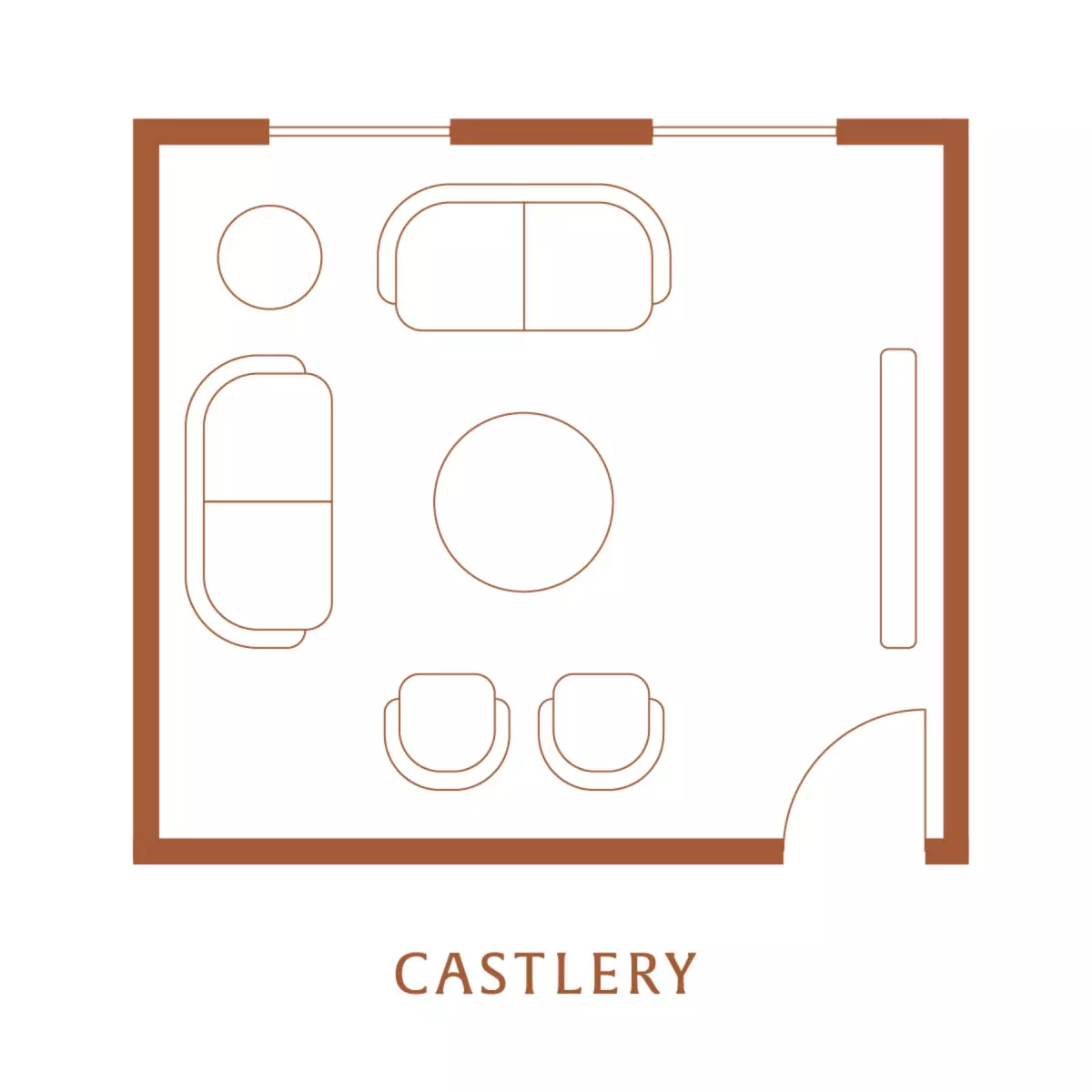 An ideal Feng Shui living room layout.
An ideal Feng Shui living room layout.
9 Feng Shui Tips for Your Living Room
Embrace the 'Command Position'
The concept of the 'command position' is a fundamental principle in Feng Shui that emphasizes creating a sense of security and control within a space. Position key furniture pieces strategically, especially the sofa, to optimize the energy flow and promote a harmonious atmosphere. For example, place the sofa facing the main entrance without being directly in line with it.
Take Note of Furniture Arrangement
While rearranging furniture won't bring about life-altering changes, it can enhance the energy flow and balance in your living room. Ensure that there are clear and unobstructed pathways, avoiding furniture placement that creates obstacles or disrupts the natural flow of movement.
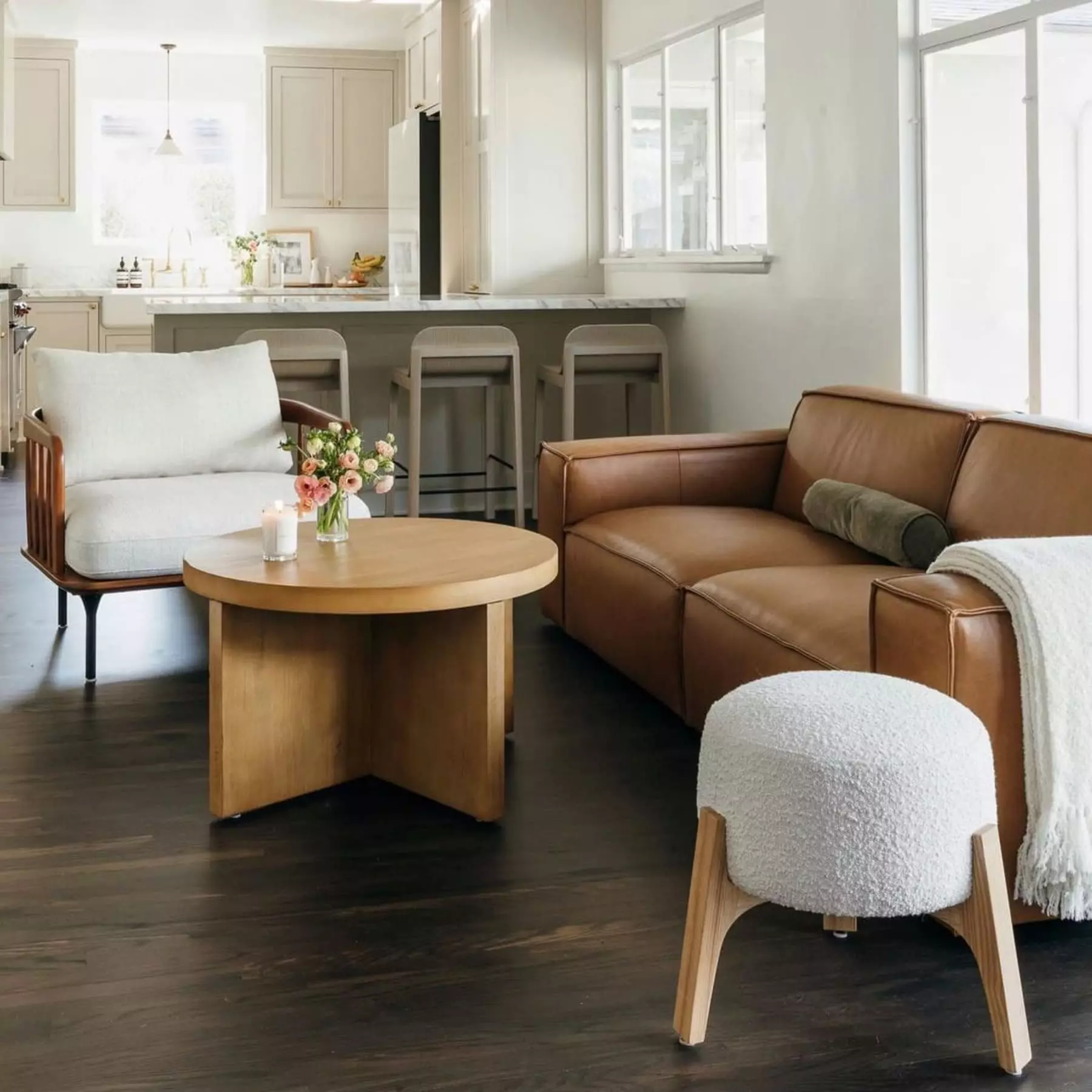 The Jonathan Leather Sofa, Wayne Armchair, and Kit Bouclé Stool are centered around the coffee table to facilitate conversation. Picture credits: @monicawangphoto
The Jonathan Leather Sofa, Wayne Armchair, and Kit Bouclé Stool are centered around the coffee table to facilitate conversation. Picture credits: @monicawangphoto
Introduce Rounded Furniture
Sharp edges are generally considered undesirable in Feng Shui, as they can create harsh or negative energy. Opt for rounded furniture, such as round coffee tables or side tables, to complement the symbolism of circles in Feng Shui. Conceal sharp structural elements by curving wall structures or using dividers to redirect sharp energy.
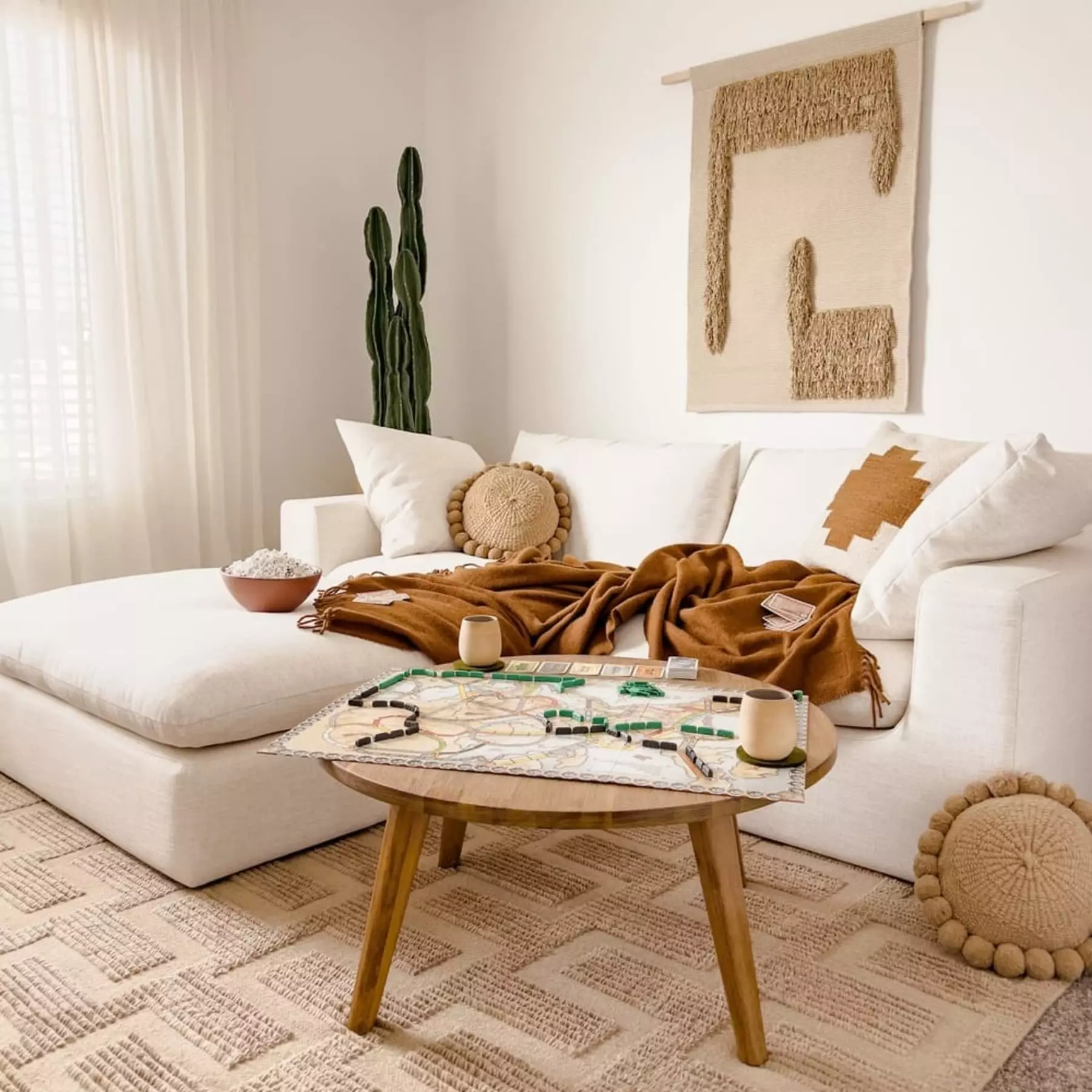 @rachelkathleenhome introduces several round elements in the living room - from the Seb Round Coffee Table to round accent pillows on the Dawson 3-Seater Sofa Set.
@rachelkathleenhome introduces several round elements in the living room - from the Seb Round Coffee Table to round accent pillows on the Dawson 3-Seater Sofa Set.
Harmonize with the Five Elements
Feng Shui philosophy recognizes five elements - Wood, Fire, Earth, Metal, and Water - that represent different types of energy in the natural world. Create a harmonious balance by incorporating these elements into your living room. For example, use wood furniture to symbolize growth and renewal, and introduce ceramics or stones to enhance stability and balance.
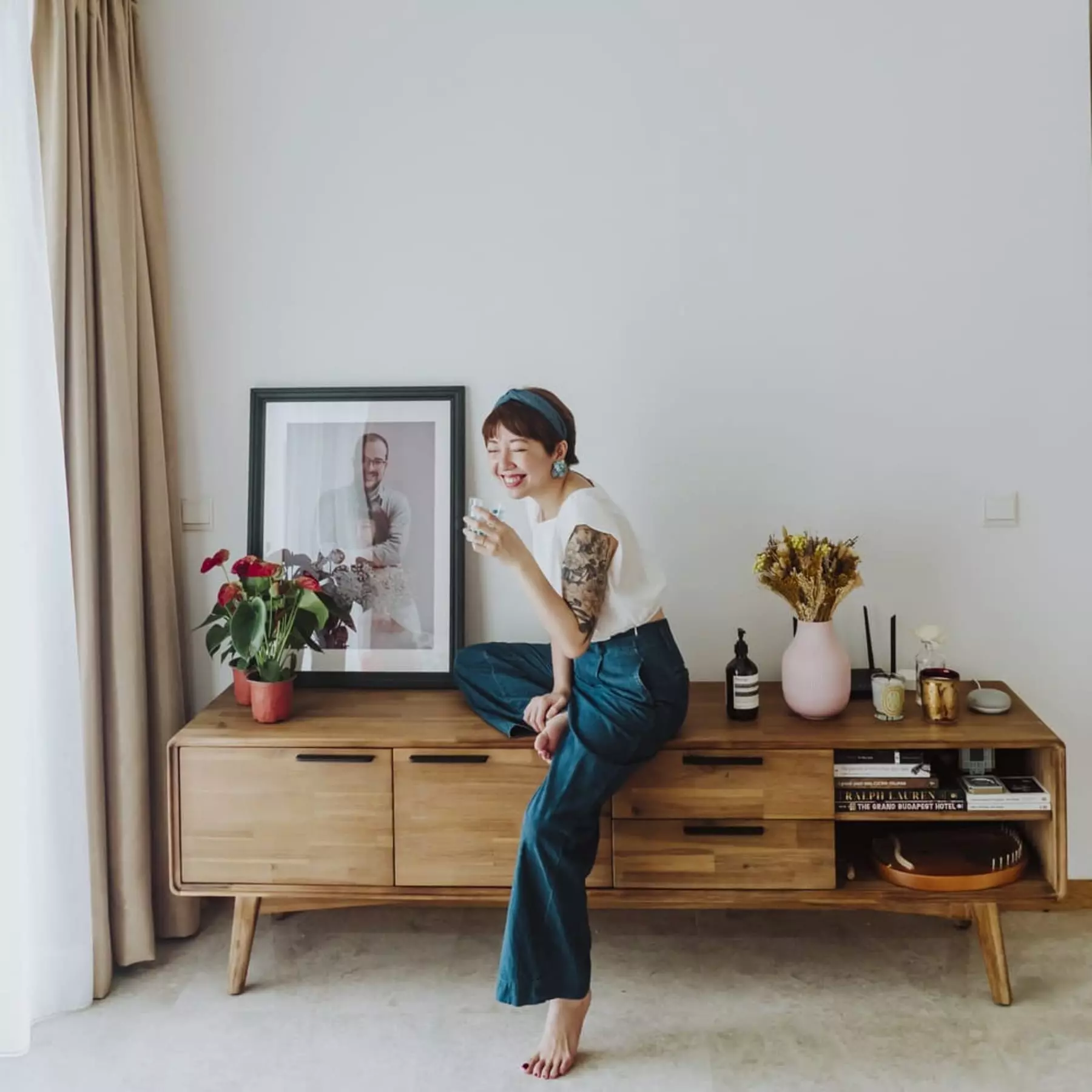 @teeteeheehee adds Wood and Earth elements into the living room. Pictured: The Seb TV Stand.
@teeteeheehee adds Wood and Earth elements into the living room. Pictured: The Seb TV Stand.
Balance Yin and Yang Energies
Balancing yin and yang energies is a key principle in Feng Shui that fosters a dynamic yet peaceful atmosphere. Introduce yin energy with soft and cozy textiles, such as plush throws or cushions, to create a comfortable and inviting atmosphere. Furniture arrangement can also balance yin and yang by creating quiet reading areas for intimate conversations (yin) while maintaining an open layout that encourages movement (yang).
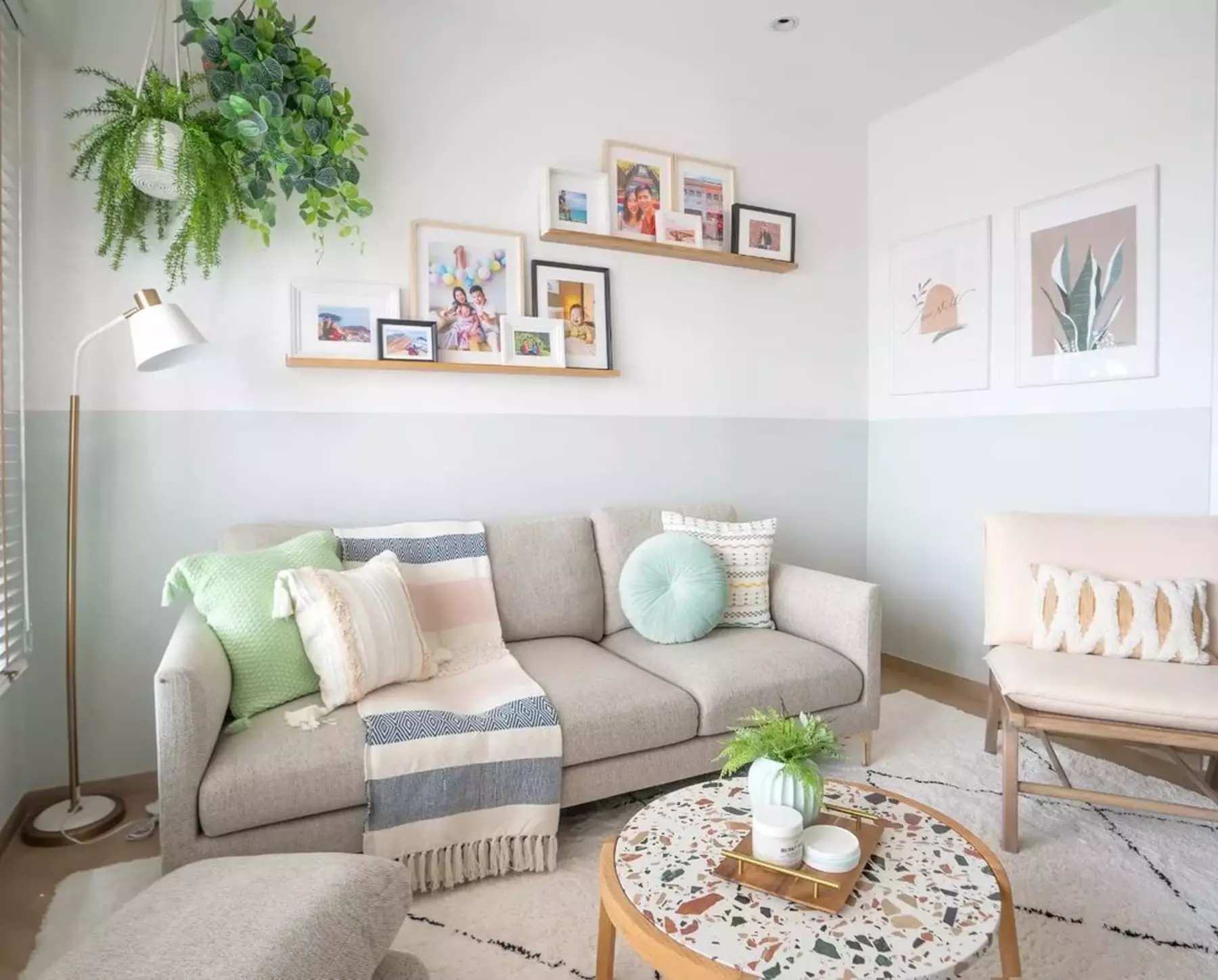 @styledbypt creates balance with the neutral Adams Sofa and vibrant throw pillows with different shapes and textures.
@styledbypt creates balance with the neutral Adams Sofa and vibrant throw pillows with different shapes and textures.
Use a Good Mix of Lighting
Lighting plays a significant role in Feng Shui, affecting the energy flow and ambiance of a space. Incorporate a good mix of lighting in your living room to accommodate various purposes, such as relaxation, socializing, or watching TV. Maximize natural light by keeping windows unobstructed and using sheer curtains to filter and soften incoming sunlight. Additionally, create a layered approach to lighting with ambient, task, and accent lighting.
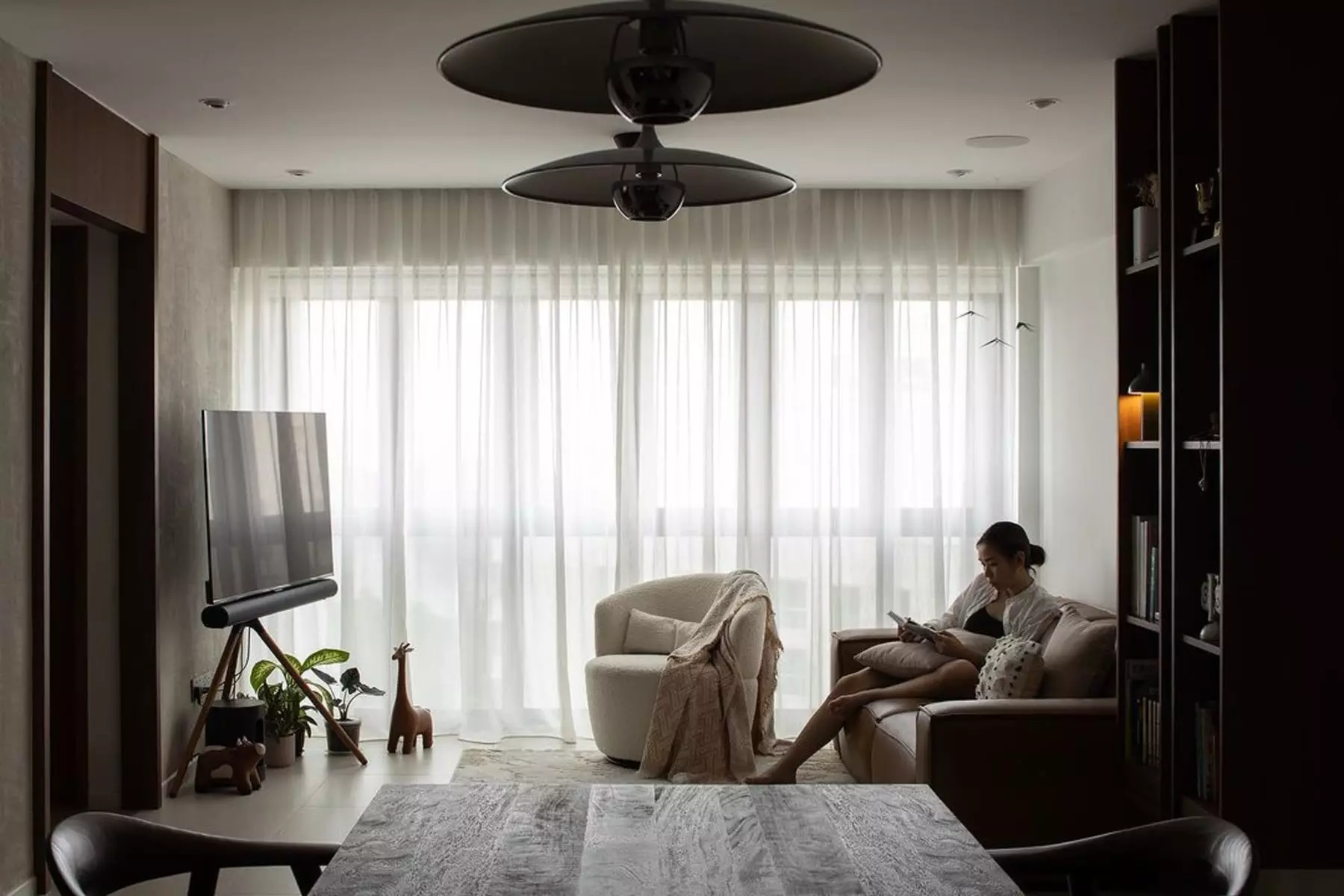 @authorsinstyle uses sheer curtains to allow as much natural light in as possible. Pictured: The Amber Bouclé Swivel Chair in Snow.
@authorsinstyle uses sheer curtains to allow as much natural light in as possible. Pictured: The Amber Bouclé Swivel Chair in Snow.
Reflect Positive Energy with Mirrors
Mirrors have the power to reflect and enhance energy in Feng Shui. They symbolically double whatever they reflect, magnifying positive energy, wealth, and opportunities. Place mirrors strategically in your living room to reflect positive elements, such as artwork or the dining table. However, avoid placing a mirror directly opposite your main entrance as it may disrupt the energy flow.
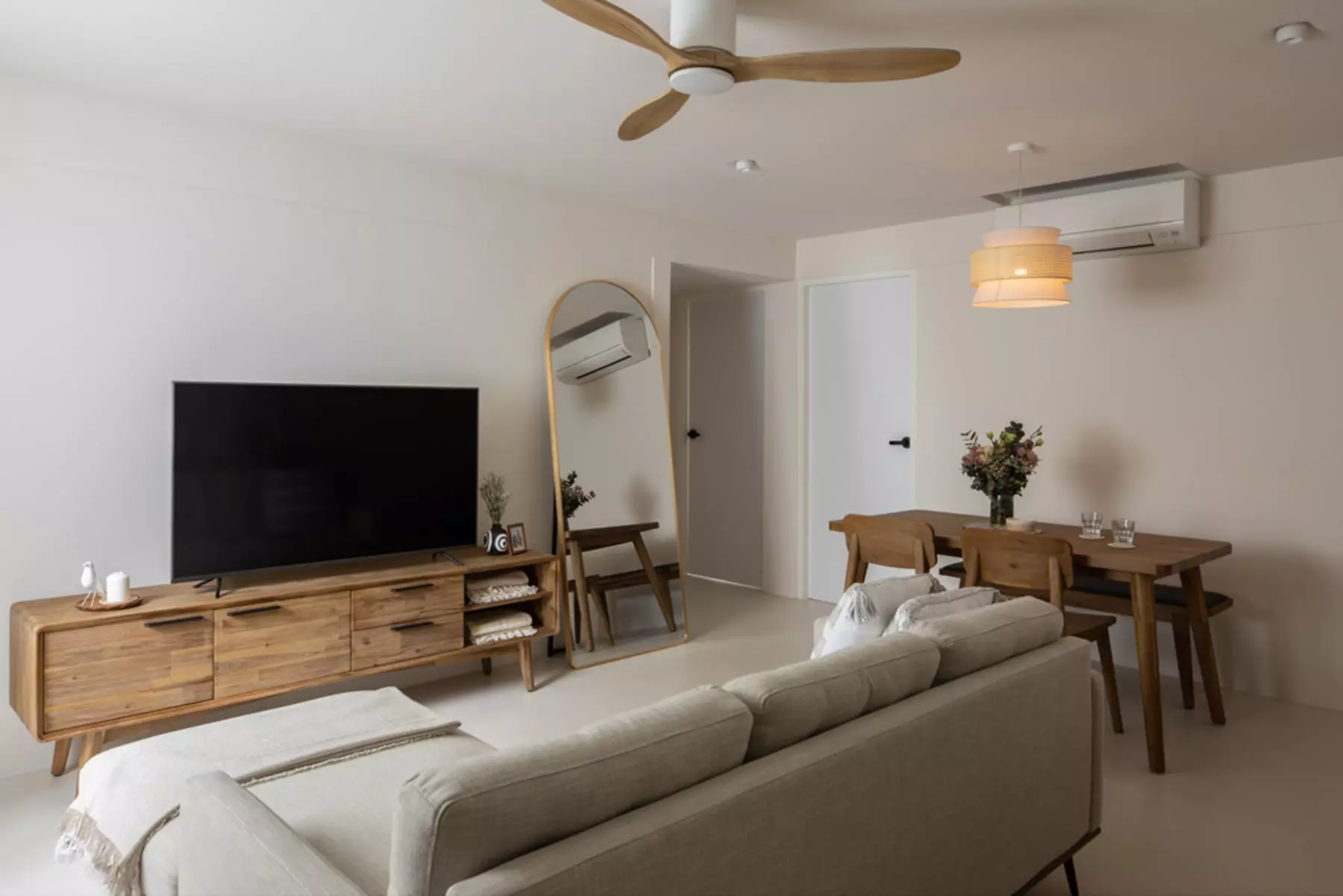 In Feng Shui, placing a mirror towards the dining table is believed to double the abundance. Pictured: The Seb TV Stand and Seb Dining Table Set. Picture credits: @kesteemo, @chelsealim.design, @lemonfridgestudio, @interiorsbyseeck
In Feng Shui, placing a mirror towards the dining table is believed to double the abundance. Pictured: The Seb TV Stand and Seb Dining Table Set. Picture credits: @kesteemo, @chelsealim.design, @lemonfridgestudio, @interiorsbyseeck
Introduce Indoor Plants
Indoor plants symbolize the Wood element in Feng Shui and contribute to positive energy flow. Choose healthy and thriving plants, such as money plants, snake plants, or orchids, to symbolize abundance, protective energy, and beauty. Avoid withering or dying plants, as they may represent stagnant or negative energy.
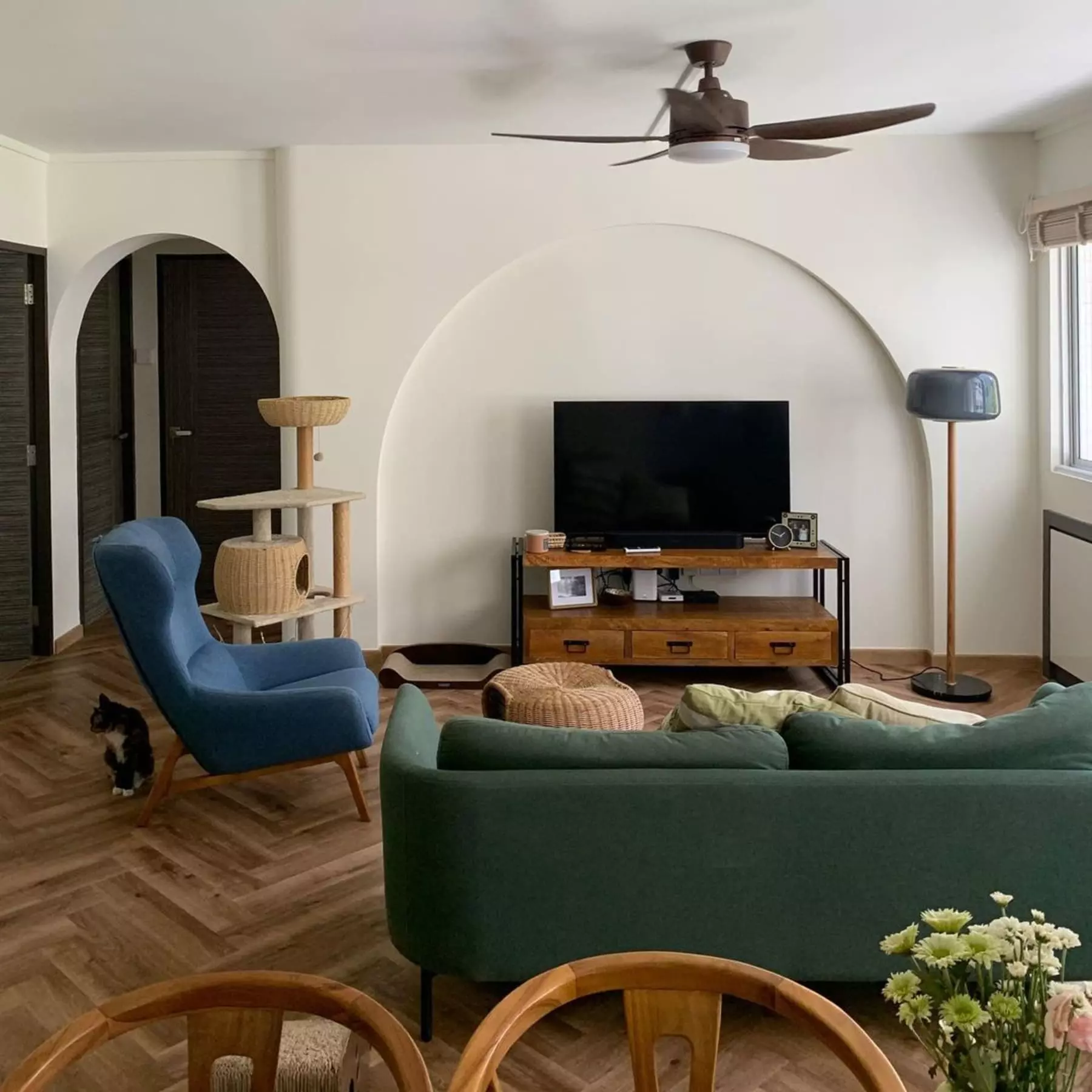
Keep the Living Room Clutter-Free
Decluttering with purpose is a fundamental aspect of Feng Shui. Removing unnecessary items allows energy to flow freely throughout your living room, creating a harmonious atmosphere and making room for new and positive experiences. Invest in stylish storage solutions to keep your living room organized and maintain a clean appearance.
 @ourwhampoahouse keeps the living room clutter-free. Pictured: The Pebble Chaise Sectional Sofa in Forest Green.
@ourwhampoahouse keeps the living room clutter-free. Pictured: The Pebble Chaise Sectional Sofa in Forest Green.
Incorporating Feng Shui principles into your living room invites positive energy, balance, and a profound connection between your inner self and the external environment. Embrace the wisdom of Feng Shui and transform your living room into a sanctuary of tranquility and harmony.














